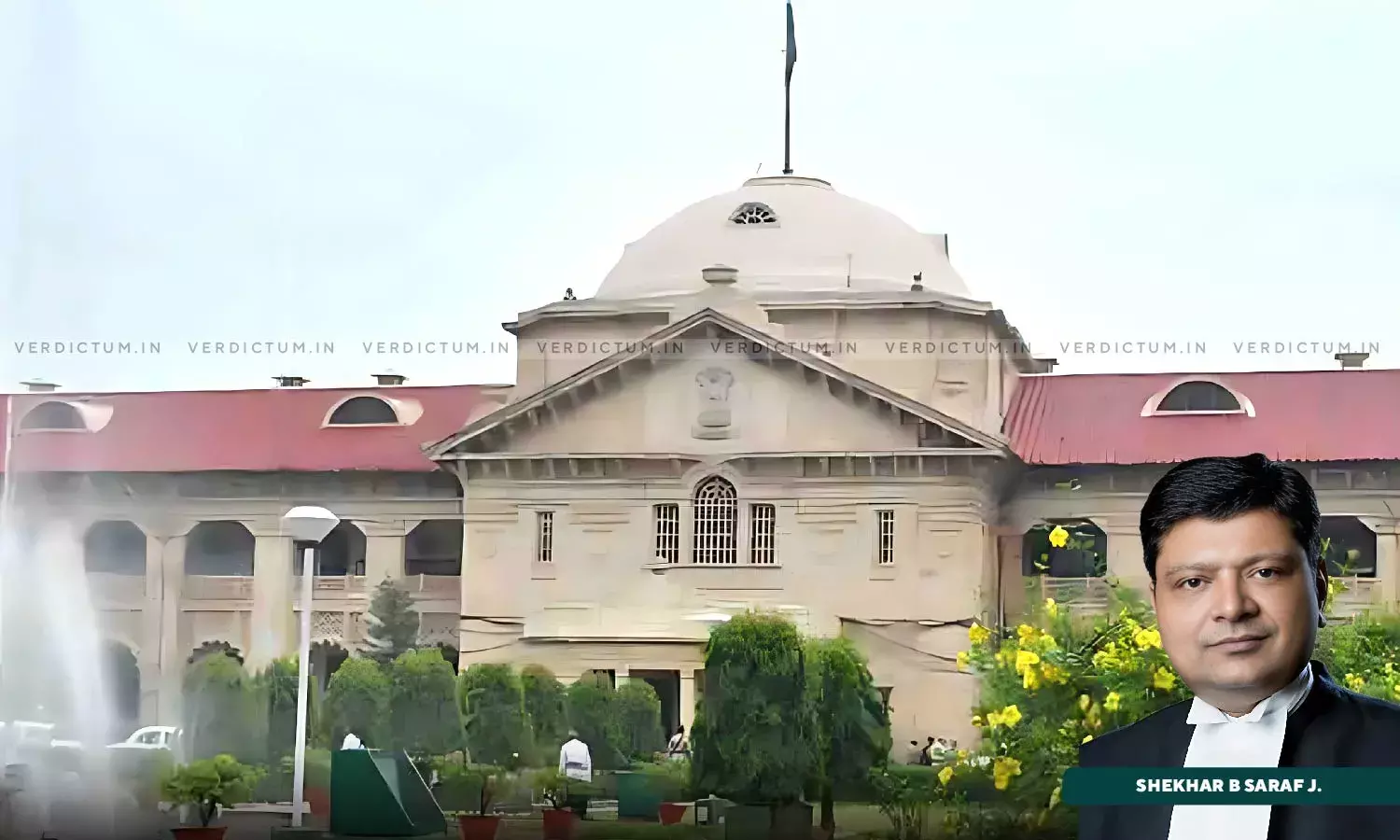Penalty For Tax Evasion Cannot Be Imposed In Absence Of Evidence Demonstrating Mens Rea: Allahabad HC
The Allahabad High Court observed that a penalty for circumventing tax obligation could not be imposed in the absence of concrete evidence demonstrating mens rea.
The Bench quashed the penalty imposed on Ace Manufacturing Systems Limited (company) as there was no evidence to demonstrate mens rea for tax evasion by the company. The petition filed under Article 226 of the Constitution challenged the seizure and penalty orders issued by the State of Uttar Pradesh after the cargo transported by the company was declared as ‘Over Dimensional Cargo’ (ODC).
A Single Bench of Justice Shekhar B. Saraf observed, “The imposition of penalties on the petitioner rests on shaky ground, devoid of any substantive basis or findings indicating an intention to evade tax. This deficiency in evidentiary support undermines the legitimacy of the penalties and raises questions about the procedural fairness of the administrative actions taken against the petitioner. In the absence of concrete evidence demonstrating wilful misconduct or deliberate intent to circumvent tax obligations, the imposition of penalties appears arbitrary and unjustified.”
Advocate Atul Gupta represented the petitioner.
The company argued that despite the cargo being declared as ODC, the authorities concluded that the vehicle could not be categorized as ODC because the goods traveled at a faster speed and reached the destination quickly.
The High Court pointed out that the speed of a vehicle was not a criterion to decide the nature of the Cargo. “The entire premise on the basis of which penalty has been imposed against the petitioner is based on surmises and conjectures and is also against the departmental circular that clearly indicates that imposition of tax on the ODC goods that had travelled at a faster speed is not a tenable ground,” the Court held.
The Bench stated that the entire imposition of penalty was based on “surmises and conjectures” without any basis or finding with regard to the intention to evade tax. “In the absence of wilful intent, penalties lose their deterrent effect and instead become arbitrary exercises of state power, subjecting innocent taxpayers to undue hardship and injustice. It is imperative that penalty imposition be grounded in sound reasoning and substantive evidence of wilful misconduct,” the Court added.
“The jurisprudential principle that mens rea, or the presence of a guilty mind, is a prerequisite for imposition of penalties holds immense significance. Its application in the realm of taxation underscores the importance of ensuring procedural fairness. By requiring the establishment of mens rea as a prerequisite for penalty imposition, the legal framework strikes a delicate balance between regulatory enforcement and individual rights, thereby fostering transparency and accountability in the administration of tax laws,” the Court remarked.
Consequently, the Court held that the mere fact that the goods in question were transported at a faster speed did not constitute sufficient grounds for penalisation, in light of the departmental circular explicitly excluding transit speed as a criterion for classification.
Accordingly, the High Court allowed the petition.
Cause Title: M/S Ace Manufacturing Systems Limited v. State of U.P. & Ors. (Neutral Citation: 2024:AHC:85850)
Appearance:
Petitioner: Advocates Atul Gupta and Prakhar Shukla




